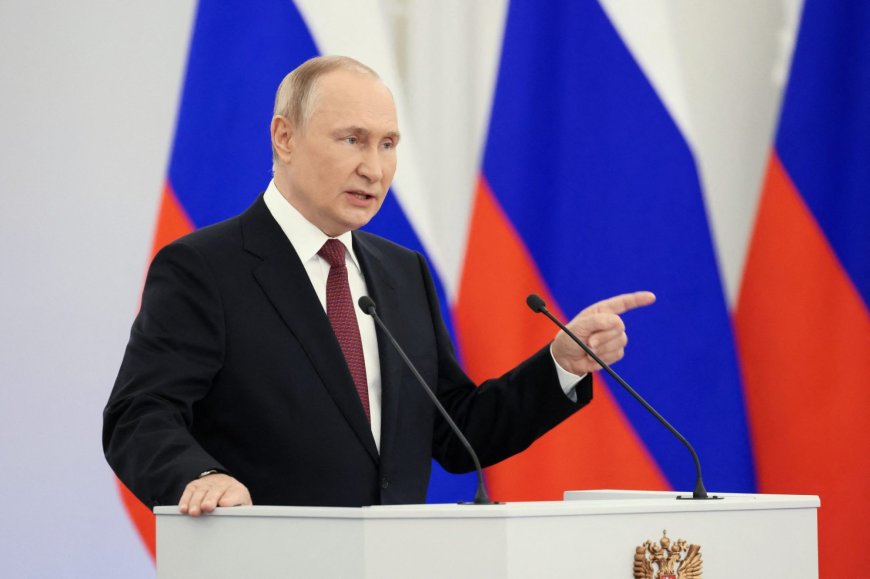Russia Calls Israel’s Strikes on Iran “Illegal,” Urges Diplomatic Resolution to Prevent Wider Conflict
Russia's Foreign Ministry denounces Israel’s continued strikes on Iran as illegal, urging a diplomatic approach and offering to mediate to prevent further escalation in the region.

A Rising Conflict Met with Global Concern
As Israeli airstrikes continued to target Iranian military and nuclear infrastructure, the Russian government on June 17, 2025, took a firm stance by labeling the actions as “illegal” under international law. The statement came via Russia’s Foreign Ministry, which warned that Israel’s continued military aggression risks pushing the region toward uncontrollable escalation.
“The continued military operations are a flagrant violation of international legal norms,” the ministry said, warning of the “unacceptable threat of a wider conflict with nuclear implications.”
Iran’s Nuclear Facilities Back in the Crosshairs
In recent weeks, Israel has escalated its operations against Iran, striking locations reportedly linked to Tehran’s nuclear development program. Sites near Natanz, Fordow, and Isfahan—which house sensitive uranium enrichment infrastructure—were among those targeted.
While Israel maintains that these strikes are preemptive and necessary for national security, Russia countered that Iran remains a party to the Nuclear Non-Proliferation Treaty (NPT) and has shown willingness to engage in renewed dialogue with Western powers, including the U.S.
Russia Offers to Mediate — Again
This isn’t the first time Moscow has positioned itself as a diplomatic facilitator in Middle Eastern conflicts. The Russian Foreign Ministry reiterated its past proposal to store Iran's enriched uranium on Russian soil under international supervision, a mechanism that had once been considered during the early stages of the Joint Comprehensive Plan of Action (JCPOA).
According to a spokesperson from the Kremlin, Russia is prepared to host multilateral talks to de-escalate tensions. However, the government also acknowledged that “Israel appears disinterested in mediation at this stage,” calling the situation a “galloping escalation.”
Global Ramifications and Strategic Risks
The continued military standoff is beginning to ripple through global financial markets. Crude oil prices surged above $93 per barrel on Monday following renewed fears of supply disruptions in the Persian Gulf. Equity indices across Europe and Asia showed signs of caution, while defense-related stocks saw a short-term rally.
Military analysts warn that beyond the immediate consequences of war, a prolonged Israel-Iran conflict could invite intervention from proxy groups and regional powers — a concern voiced in global diplomatic circles. Several members of the UN Security Council, including China and France, have also called for restraint, although formal resolutions have yet to materialize.
A Legal Challenge to Israel’s Strategy
Russia’s sharp wording — calling the airstrikes “illegal” — adds a legal dimension to the geopolitical crisis. Moscow emphasized that Israel's actions lacked UN Security Council authorization, a standard often cited in justifications of the use of force.
“In the absence of a multilateral mandate or an imminent threat as defined under Article 51 of the UN Charter, the military action cannot be justified,” a Russian legal advisor stated during a press conference in Moscow.
This diplomatic move is also seen as Russia’s attempt to reassert influence in the Middle East, especially as it navigates its own isolation over the Ukraine conflict. By appearing as a responsible stakeholder advocating diplomacy, Moscow seeks to regain international standing.
What Comes Next
-
Iran's Response: Tehran has signaled it will retaliate in “measured phases,” possibly through cyberattacks or missile launches targeting Israeli defense installations.
-
U.S. Stance: Washington has so far avoided direct involvement, though it reiterated its “ironclad commitment to Israel’s security” while encouraging diplomatic restraint.
-
UN Involvement: An emergency session of the UN General Assembly is expected later this week to address the growing instability.
Conclusion: Time Running Out for Diplomacy
The Israel-Iran conflict is at a dangerous crossroads, and Russia's call for de-escalation—though politically strategic—presents a genuine opportunity for diplomacy. As both nations harden their positions, the international community faces a critical question: can diplomacy prevail before the region plunges into broader war?
If the past is any guide, backchannel negotiations and multilateral pressure could still halt the descent. But with every passing day, the window narrows.














